The Story Of A Ukrainian Orphan Accused Of Lying About Her Age Is Too Messy For TV
This is an excerpt from our true crime newsletter, Suspicious Circumstances, which sends the biggest unsolved mysteries, white-collar scandals and captivating cases straight to your inbox every week.Sign up here.
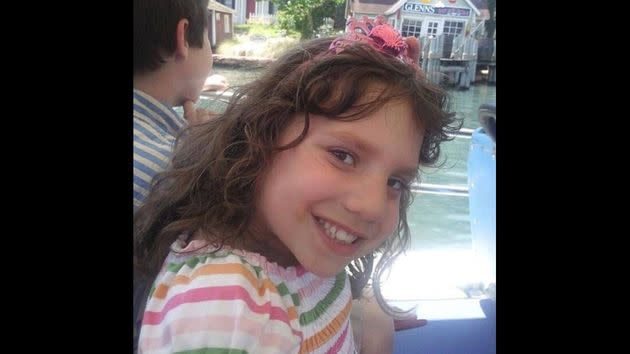
Natalia Grace in a family photo.
More than 10 million people so far have watched Investigation Discovery’s “The Curious Case of Natalia Grace,” according to the network that billed its docuseries as a “bizarre family saga” about the allegedly 6-year-old Ukrainian girl adopted by Kristine and Michael Barnett. The couple claimed she terrorized their family and was actually an adult pretending to be a child. Natalia and others — including the woman believed to be her biological mother — have disputed this, but a judge sided with the Barnetts and ordered that her birth certificate be changed, making her 13 years older. Then the Barnetts and their other kids moved to Canada, leaving Natalia, who has a form of dwarfism, to fend for herself in an apartment they rented for her. Legally, she was 22, but based on her Ukrainian birth certificate, she was actually 9 years old.
These are just the barebones details of a complex, fraught story that a six-episode docuseries cannot adequately tell. Nor does it have a satisfactory conclusion: Accounts are contradictory, physical age indicators have been interpreted differently by medical and legal professionals, and questions surrounding Natalia’s previous adoption in the U.S. and privacy laws make a definitive answer impossible.
How old is Natalia? Why was she legally “re-aged” from a young child to an adult? Was the judge’s decision to change her birth certificate based on sound evidence, or was it arbitrary? Did Natalia really terrorize her adoptive family and try to kill her mother and brothers? If so, why didn’t they contact the police, social services or adoption agencies? Or was Natalia abused by the family, as Michael Barnett and one brother claim? Did she have her period and pubic hair, as Kristine Barnett and anonymous hospital staffers later said? How could her parents escape punishment after leaving her in a second-floor apartment in a town she’d never lived in, knowing how difficult it would be for her, regardless of her age, to scale the stairs and manage independently without accommodations for her disability?
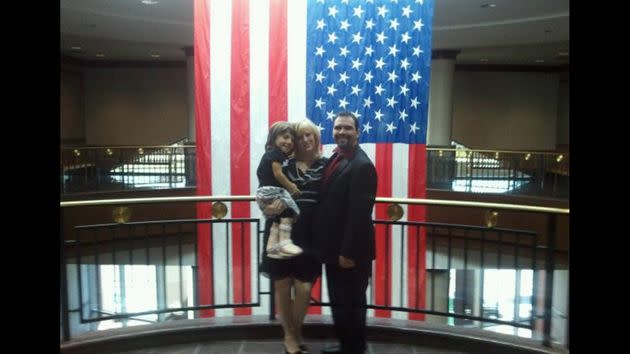
Michael, Kristine and Natalia Barnett stand in front of a flag in a family photo.
Although the network promises “shocking access,” two key players are missing from the docuseries: Adoptive mother Kristine Barnett and Natalia. Kristine Barnett refused to participate, and ID pointed out that Natalia was bound by a gag order while a felony neglect case against the Barnetts was ongoing. A follow-up documentary, “Natalia Speaks,” will air later this summer, though it remains to be seen if she can provide meaningful answers in a new interview.
Meanwhile, the original six hours of the series are filled with her adoptive father Michael Barnett, a melodramatic, indignant, sobbing, screaming, self-described victim of Natalia’s machinations and his wife’s abuse. He was acquitted of neglect charges by a jury last October; the charges against his now ex-wife Kristine Barnett — the couple divorced in 2014 — were dropped in March. Thelast two hours of “Curious Case” could aptly be titled “Michael Speaks” — and besides being eye-rollingly boring, he doesn’t earn the attention.
Kristine Barnett isn’t completely silent in the docuseries, although she is villainized. Her voice is heard in recorded phone conversations with her husband and unnerving videos she and Michael Barnett filmed of Natalia being disciplined and apparently admitting what she had done wrong — usually by parroting Kristine Barnett or responding to her mother’s assertions. It’s baffling: Did Kristine Barnett start filming to document Natalia’s behavior for authorities, or was she coaching her to admit to transgressions so the Barnetts would have so-called proof?
One of the most confounding aspects of this story is that Natalia herself is an unreliable narrator. When her parents are grilling her on camera, we don’t know if she is telling the truth or saying what they want to hear. The only time “Curious Case” shows Natalia speaking without the Barnetts is in short snippets from a deposition and a September 2019 interview with a prosecution team member in the case against Michael Barnett before she testified at his trial. At one point, she responds to the prosecution team member’s question about her parents’ discipline by saying, “They didn’t, like, really, like, whup me or nothing.” In another clip from the same interview, she seems to falter, asking, “Did I say they didn’t whoop me?” She then clarifies: “You know sometimes parents whup with a belt? They did whup me.” Then she adds more chilling details: She was “whupped” by all three of her brothers while her parents watched, and the eldest, Jacob, would pick her up and drop her onto the floor.
So why downplay the violence at first when she was preparing to testify against Michael Barnett? If the documentarians had access to the entirety of these videos, it’s disappointing that they chose to let Michael Barnett’s performances dominate the series. (In one moment, he even brags to a producer that he can turn on the waterworks on cue.)
According to Michael Barnett and his son Jacob, who lived in his father’s basement at the time of filming, Natalia was a victim of horrific abuse by the family. The dad paints himself as a frightened bystander, unable to stop Kristine Barnett when she brutally beats her daughter and exacts other punishments, like forcing Natalia — who said she also has scoliosis — to stand against the wall for hours. Jacob, who is autistic and seems traumatized by the retelling, said Kristine Barnett ordered him to urinate on Natalia’s bed in retaliation for her behavior. In a “hot mic” off-camera moment, Jacob and Michael Barnett seem to confer about a decision not to share an incident in which Kristine Barnett allegedly kicked Natalia down the stairs.
If Natalia wasn’t lying to authorities, could her contradictory statements result from confusion after years of “covering” for her parents’ alleged abuse?
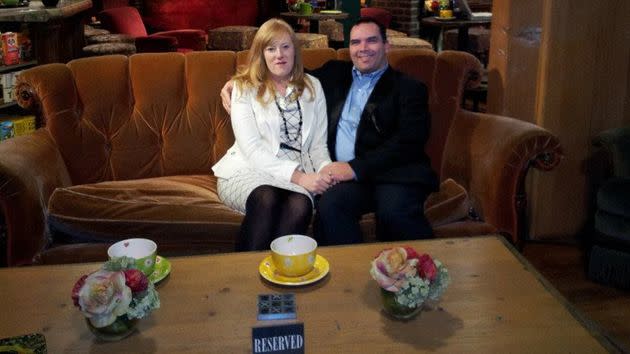
Kristine and Michael Barnett in an undated photo.
Natalia and the couple who eventually took her in (and with whom she still lives today), Antwon and Cynthia Mans, spoke with Phil McGraw, host of the “Dr. Phil” talk show, in an episode that aired in November 2019. Still, the interview — which was not included in the documentary — raises more questions than it answers. Natalia told McGraw she was 16 at the time, and that her true birth date was Sept. 4, 2003, confirmed by her Ukrainian birth certificate. She had come to the U.S. from Ukraine when she was 6 and was adopted by a New Hampshire family, whom she said she lived with for two years.
But it’s difficult to make the dates line up. According to legal expert Beth Karas in “Curious Case,” Natalia was adopted in 2008 by the New Hampshire couple, whom she identifies as Gary and Dyan Ciccone (the Ciccones do not appear in or comment for the docuseries), which would have made Natalia no older than 5, based on Ukrainian records and her original U.S. birth certificate.
Natalia also dropped what seemed like a bombshell: She said her adoptive mother in New Hampshire thought she had tried to break her brother’s arm and said, “I can’t do this anymore” — a comment that Natalia said she couldn’t explain.
“It’s clear they wanted to unload her,” Karas said in the documentary, without explaining why, adding the search for other parents for Natalia happened after only one year, not two.
Whatever the truth is, Natalia’s experience warrants a rigorous examination of adoption laws and policies, internationally and in the United States, and the practice of “re-aging” adoptees (usually to make them younger and more appealing to potential parents). It’s a glaring omission in “Curious Case,” which includes interviews with two couples contacted by Little People of America who were interested but ultimately decided against adopting Natalia because they felt uncomfortable with the arrangements. Both expressed concern about sketchy financial requests and were unsettled by the circumstances in which Natalia lived in New Hampshire. The documentary also glosses over what avenues of support might have been available to Natalia’s adoptive parents.
“When a child is struggling, all parents, regardless of how the family was formed (i.e. biologically, through birth, through adoption), need services and supports to ensure the safety and well-being of the entire family, and the best interests of the child,” the National Council for Adoption (NCFA) said in a statement to HuffPost.
“Ideally, that can be achieved through in-home or outpatient therapeutic and mental health services,” the NCFA said. “If they need to seek out-of-home care or placement, there are legal avenues for that which should be conducted in accordance with state laws and guided by a licensed child welfare agency and attorney. Some of the options include respite care, residential treatment, relinquishing the child to the public child welfare system for care, or a permanent transfer of parental rights through a private attorney.”
The filmmakers in “Curious Case” do not speak to adoption experts or attorneys who could explain the laws in the various states where Natalia lived or more thoroughly interrogate Michael Barnett about the family’s decision not to ask for help. Instead, they lean into horror-movie tropes — and without mentioning or showing Natalia’s 2019 interview with McGraw, they seem to latch on to a cringe-inducing comment he made to her: “I guess it all comes down to whether you are an evil psychopath demon child that’s come over here to murder everybody.”
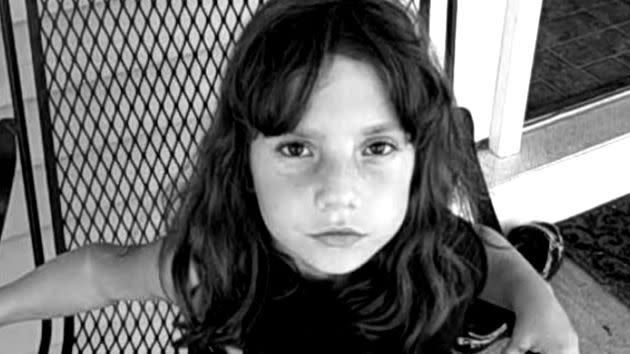
Natalia in an undated photo.
Manycomparisonshave been drawn between Natalia’s story and “The Orphan,” a horror film about a murderous Russian adult with a form of dwarfism who poses as a child and terrorizes the family who adopts her. “The Orphan” premiered in 2009, the year before the Barnetts adopted Natalia, and adoption advocates protested that it could “impede recruitment efforts by feeding into the unconscious fears of potential foster and adoptive families that orphaned children are psychotic and unable to heal from the wounds of abuse, neglect and abandonment.”
What the Barnetts described certainly sounded like a horror film. They said Natalia openly stated that she wanted to kill the family, hid knives around the house, stood by their bed holding up a knife when they were sleeping, threw her brothers’ toys in the street in the hopes that the boys would chase after them and get run over by a car, poisoned Kristine Barnett’s coffee with cleaning fluid and pushed her into an electric fence at a public farm.
After that alleged incident at the farm with Kristine Barnett, which was not witnessed by any workers there, and Natalia told McGraw had been misconstrued, Natalia was admitted to a psychiatric hospital. According to Michael Barnett and anonymous staffers heard in audio recordings, staff saw that Natalia had pubic hair, transferred her to the adult wing and eventually released her from the hospital because she flirted with the adult men and made inappropriate sexual advances. The titular character of “The Orphan” also made sexual advances to a man and had been a patient at a mental hospital.
But it was not only the Barnetts and hospital staffers who accused Natalia of alarming behavior — so did her neighbors in an apartment complex where she lived alone. According to her Ukrainian birth certificate, she was not yet 10 years old when the Barnetts set her up in the apartment and moved the rest of the family to Canada.
Kristine Barnett told a local newspaper that they had relocated so that their 15-year-old son, Jacob — featured as a “math and science prodigy” in a “60 Minutes” segment focusing on his autism — could attend graduate school. She doesn’t mention Natalia in the interview — and she doesn’t mention that she has a daughter, or adoption at all, in a parenting memoir published in 2014 called “The Spark: A Mother’s Story of Nurturing, Genius, and Autism.”
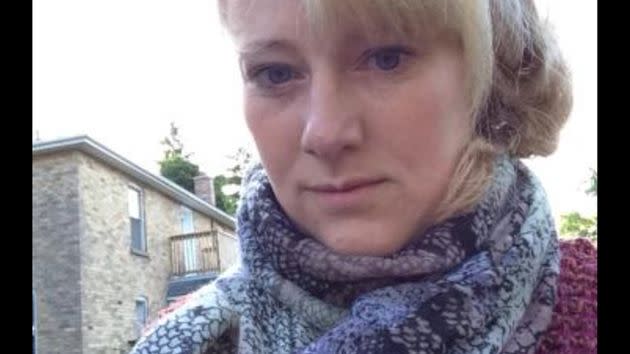
Kristine Barnett wrote a parenting memoir called “The Spark: A Mother’s Story of Nurturing, Genius, and Autism.”
When Natalia lived alone, her neighbors complained that she began to show up uninvited, came inside and raided their fridge when they weren’t home, demonstrated “borderline inappropriate” sexual behavior toward boys and men, stalked and stole from them. One neighbor called her “evil and devious,” and the documentary’s choice to air grainy surveillance footage over a suspenseful soundtrack added a menacing quality to her walks across the complex.
Apparently, Natalia was concerned enough about her own behavior to call 911. “I’m stalking one of my neighbors,” the voice of an actor playing Natalia says in a dramatization of the call’s transcript. “I’m afraid of what might happen if someone doesn’t help me.”
It’s unclear what kind of help, if any, Natalia received. A former police detective interviewed in “Curious Case” alleges that the neighbors’ complaints about Natalia drove her parents to relocate her to a seedy apartment in Lafayette, an hour away. “Let’s get her out of our life,” the detective said they thought. “And they did.” Michael Barnett said they chose the location because of its access to a variety of social services. But the apartment they selected was on the second floor, requiring Natalia to climb a staircase in addition to the outdoor steps. Over more dramatic music, the documentary shows texts attributed to Kristine and Michael Barnett, purportedly demonstrating their plot to isolate and prevent Natalia from contacting social services.
“The Barnetts took a 3-foot-tall, disabled little person, put her in an apartment on the second floor, where she’s gotta scale stairs that are dangerous, given her disability,” Karas summarizes. “It’s in a high-crime neighborhood. She’s in an apartment with no accommodations for her disability, couldn’t reach the stove, couldn’t reach the washing machine dial. They took her cellphone. There’s no landline in the apartment. There’s absolutely no way for her to call for help… There was no electricity or food. So what are the Barnetts doing here? Are they trying to keep her silent? Or are they trying to get rid of her for good?”
Any answers about their intentions won’t come from the legal system. Statute of limitations laws mean that the Barnetts likely won’t be prosecuted again, and the courts have refused to change Natalia’s age again or allow the Mans to become her legal guardians.
Natalia still lives with the Mans and refers to them as her parents, according to recent posts on Facebook and Instagram.
Ever since Natalia Grace’s story first made headlines, people have been fascinated by the case. The accusations made by the Barnetts were so outlandish, the charges levied against them so outrageous, the judge’s decision to re-age Natalia by 13 years so bewildering, and Natalia’s recollections so hazy and her behavior so confusing that it may end up being a mystery that no one can solve.
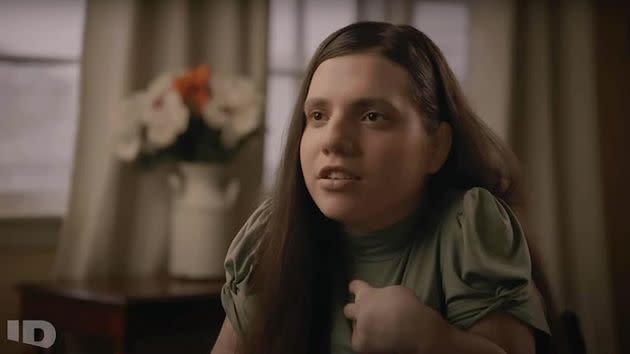
Natalia in the upcoming documentary "Natalia Speaks."
After years of swirling claims and theories about her past, Natalia will have a chance to tell her story and respond when “Natalia Speaks” airs. (The premiere date has not been announced yet.)
Still, she may be unable — or unwilling — to answer all of the questions raised in the original documentary. We’ve seen that Natalia often replies to questions — by McGraw, in legal interviews and by the Barnetts in the videos they filmed — by saying she can’t remember. Her memories are especially fuzzy about her early childhood in Ukraine and the years before the Barnetts adopted her — nor does she seem curious to learn all the answers.
One thing she insists, however, is that the Barnetts cannot be trusted.
She stated in a trailer for “Natalie Speaks”: “The things that Kristine and Michael Barnett have said that I have done is a lie. I have never done anything that Kristine and Michael have said that I have done.”
All episodes of “The Curious Case of Natalia Grace” are now available to stream on Max.
Need help? In the U.S., call 1-800-799-SAFE (7233) for the National Domestic Violence Hotline.
